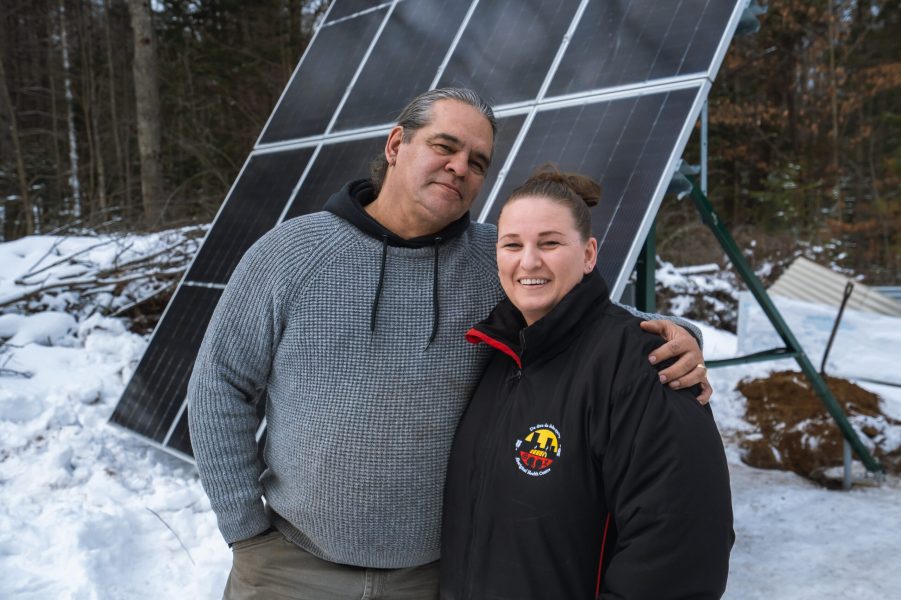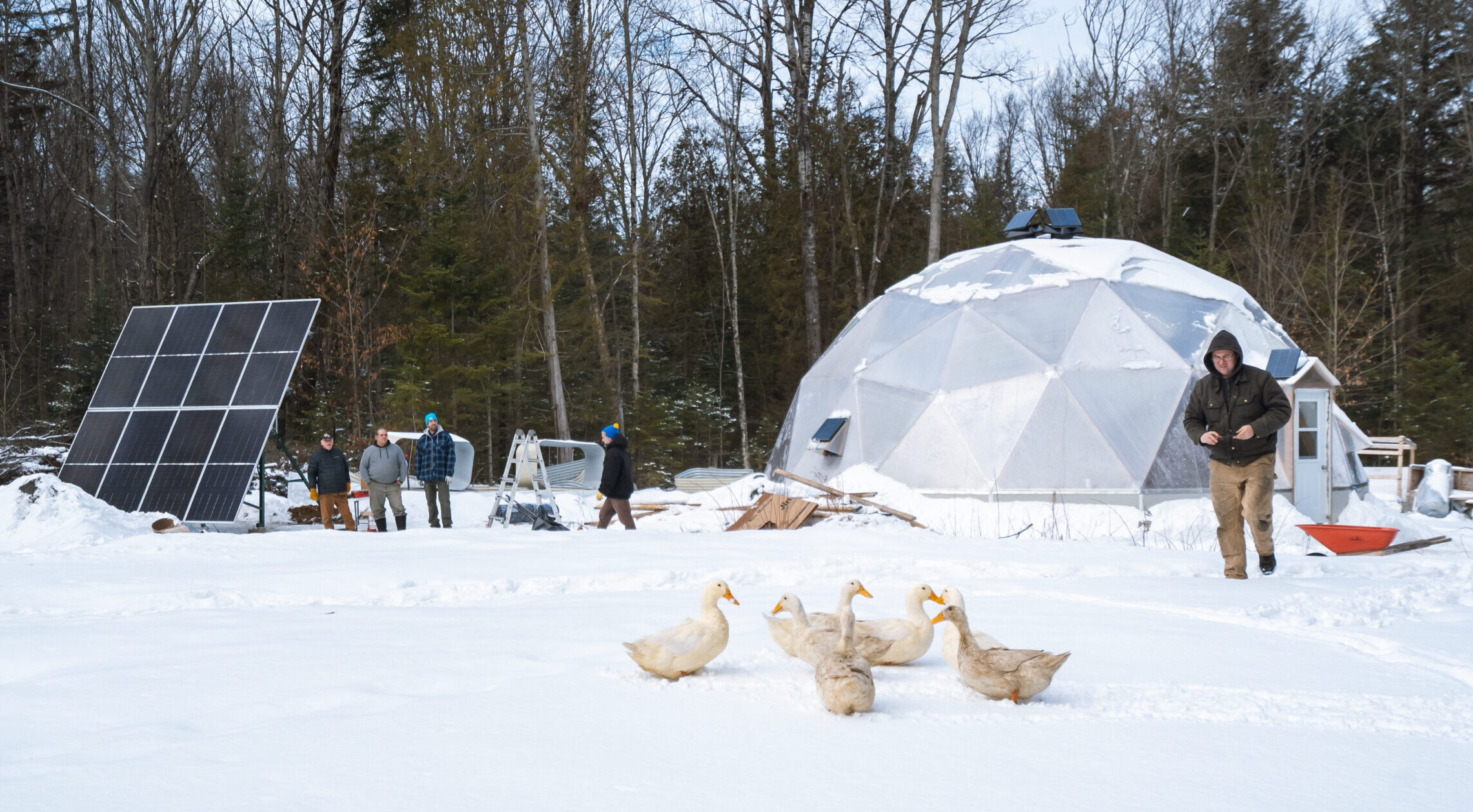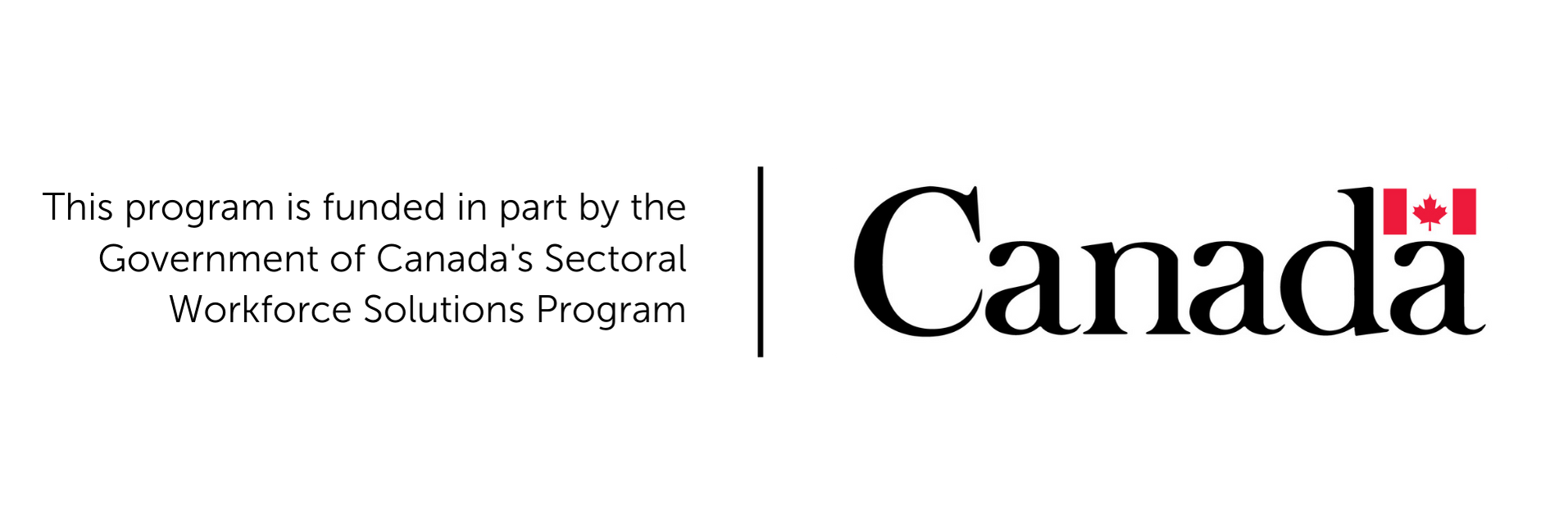Collaborating on food security project with members of the Six Nations community
In the heart of Muskoka, not far from the Mohawk community of Wahta, a strong alliance between Relay Education and Bear Waters Gathering is changing the landscape of food security for Indigenous communities.
By: Jessica Wilson, Green Skills Academy Coordinator
Published: September 3, 2024

Relay Education and Bear Waters Gathering are both driven by a shared commitment to uplifting ancestral knowledge and traditional agricultural practices to help fight climate change.
We partnered to create a space for the community to grow food and learn traditional food knowledge. Amanda and Strength Of Two Buffalo Dale lead the initiative. They are co-founders of Bear Waters Gathering, an Indigenous hub for education and wellness.
“My Mohawk name is Tekasatstennserake. It means He Carries Two Strengths. The name Bear Waters comes from Amanda and I coming together. The name given to me as a child was Bear Cub. The bear and water, we come together, and we gather. We gather teachings, learnings, understandings, whatever we can, so that we can offer it back out to the community.”
Shared Tekasatstennserake (Strength Of Two Buffalo Dale).
“My Onkwehonweh name is Kanekatatie. It means water that moves continuously. I am from Six Nations on my mother's side and L’nu and French on my father's side…we took something that was just a vision and made it a reality…I feel like it's going to serve many people in our communities, not just in our local area, but people who visit us from other Indigenous communities.”
Shared Kanekatatie (Amanda Dale).
Historical injustices and systemic barriers have hurt Indigenous communities across the place currently called Canada. They have disrupted access to traditional foods and eroded cultural identities.
“Colonization and the weaponizing of food have disrupted our original ways of relating to food which included disrupting our traditional ecological and agricultural knowledge,” said Kanekatatie (Amanda).
Kanekatatie remembers growing up with their father’s L’nu (Mi’kmaq) ways of providing for their family. Her father used the traditional skills of trapping, fishing, hunting, and growing food. Her father’s Indigenous identity was deeply rooted in and interconnected with food. He worked tirelessly to pass down these traditions to his children.
Tragically, he was criminalized, fined and experienced violence from authorities while trying to exercise his inherent right to harvest his own food. He became discouraged and stopped his traditional practices of fishing and eating many of his traditional foods. His health deteriorated.
“They took away more than his fish. They took his spirit.” said Kanekatatie.
“My father died from the colonization of his food system. Diabetes and heart disease are three times more likely to occur in Indigenous peoples. I believe this is because of the colonization of food systems and the inability to access the land for food sustenance”, she said.
“His lived experience continuously inspires me to be self-sufficient. I think about how proud my dad would be that we are doing this, because his life and cultural identity was deeply connected to food.”
Kanekatatie‘s memories are a tragic reminder of how colonization deeply affects Indigenous food systems. She hopes that transferring ancestral food knowledge to younger generations will revitalize our reciprocal relationship with food.
Relay partnered with Bear Waters Gathering in the spring of 2023 to create a space to preserve ancestral food knowledge for future generations.
“It’s about preserving something that’s almost lost”, Kanekatatie asserted.
They’ve named the project Kahkwiio (Living food): Oiana (Following the Footprints of our Ancestors). Kahkwi:io the Living Food project will service people from Six Nations through to Kahnawake in Quebec.
Together we built a 33-foot four season geodesic dome as well as two greenhouses with interior raised garden beds and 12 outdoor garden boxes in the fall of 2023.

In December 2023, Andrew Cahill from Relay ran a solar installation training for BIPoC community members to learn about solar energy systems. We installed an off-grid solar energy system (5.4 kilowatt) during this training which provides power for the geodesic dome.
“The work is more than just building a greenhouse and infrastructure. It's about a relationship that Relay Education has built with us. You've strengthened our capacity. Relay Education has made this a reality, but you've also given us space to be autonomous,” remarked Kanekatatie.
We’ve had a full year of learning and growing together. We’ve built infrastructure, completed a renewable energy training and Elders have shared agricultural teachings.
Relay Education is honoured to have worked alongside Bear Waters Gathering and to see the Kahkwi:io Living Food Project come to life.
We’ve seen a lot happen over the last year. We’re happy to have Indigenous perspectives and wisdom leading this initiative. We’re thankful for the relationships built between our organizations.
“Oseriwakwanieste is the word for us. Oseri means to help, and oseriwakwanieste is to help one another reach our fullest potential. I feel like Relay Education did that for us. You’re continuing to help us reach our fullest potential. I hope to pay that forward and help others reach their fullest potential,” said Kanekatatie.
Bear Waters Gathering will be hosting community planting events, sharing traditional ecological and agricultural knowledge, and offering cultural and ceremonial activities throughout the year.
Everyone is welcome to learn about Indigenous ways of relating to food and there will be plenty of learning opportunities to apply the knowledge being shared. They hope to reach out to people experiencing food insecurity and share what they’ve learned.
Kanekatatie and Tekasatstennserake invite volunteers to join them. The journey continues as they create a space for connection and growth. You can contribute to this shared vision by building, planting, or engaging with the land. All are welcome.
Bear Waters Gathering is a place where people can come to connect with the land, put their hands in the dirt, and learn new skills.
To find out more or offer support, contact Kanekatatie (Amanda) and Tekasatstennserake (Strength) by email.
The opinions and interpretations in this publication are those of the author and do not necessarily reflect those of the Government of Canada.

